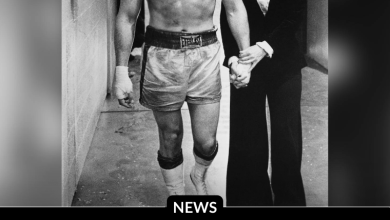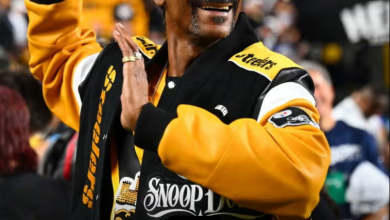Studios Offered Stallone $360,000 to Walk Away From Rocky — His 12 Words About ‘Selling Out’ Shocked Hollywood Into Silence
OPINION: This article may contain commentary which reflects the author's opinion.
Before Rocky turned Sylvester Stallone into one of Hollywood’s most enduring icons, the struggling actor faced a decision that could have changed his life forever. Studios were willing to pay him $360,000 — a fortune at the time — to hand over the screenplay and walk away from playing the lead role. Stallone’s refusal, punctuated by 12 words that stunned executives into silence, became the defining moment of his career.
“If you give this up, you’ll be the most bitter human alive.”
A Lonely Start
Long before the fame, Stallone knew rejection intimately. Moving to New York in the late 1960s, he described himself as “lonely,” often working menial jobs while chasing auditions. In an interview with TODAY, he recalled one particularly bleak New Year’s Eve in 1970.
“I went to Times Square alone,” he said. “I looked around and realized everyone here wants to be somebody, so I’d better go home and work hard, ’cause this is your competition.”
The years that followed brought typecast roles, often as thugs or heavies, leaving Stallone determined to create a character who reflected his own hunger and vulnerability.
Finding His Voice in Rocky Balboa
By the mid-1970s, Stallone recognized both his limitations and his strengths. “I didn’t have the bones to be a Shakespearean actor,” he admitted to The Hollywood Reporter in 2023. “It’s important as an artist to know what your strengths are, but more important to know your weaknesses.”
That realization birthed Rocky, the story of an underdog boxer from Philadelphia that Stallone wrote for himself. Studios immediately saw potential in the script — but not in Stallone as the star.
When one studio offered him $360,000 to sell the screenplay and let another actor step into the gloves, Stallone refused. “This [role] is you, Sly,” he told himself. “If you get rid of this, yes, you’ll have $360 grand, but eventually that will be gone and you will be the most bitter human being because the entire film was about not selling out.”
A Cultural Phenomenon
Stallone’s gamble paid off beyond his wildest dreams. Rocky (1976) became a box-office triumph and a critical darling, earning 10 Academy Award nominations and winning three, including Best Picture. Stallone himself was nominated for both Best Actor and Best Original Screenplay — a feat matched only by Charlie Chaplin and Orson Welles at the time.
The film’s success launched one of cinema’s most enduring franchises and established Stallone as both a writer and star. Over the decades, he would go on to script more than 25 films, including the Rambo series, The Expendables, and other action classics.
Beyond the Screen
Despite his reputation as an action star, Stallone has always considered writing a demanding part of his creative identity. “You go into a fog,” he admitted. Away from film, he has also pursued painting, describing it as a similarly combative process.
“Painting is where I feel close to a bare naked truth,” he told Artnet in 2021. “When a painting resists halfway through, I don’t shy back from the conflict. I think and get physical with the brush.”
The Legacy of a Refusal
Nearly 50 years later, Stallone’s decision to reject the $360,000 payday remains one of the most famous “what ifs” in Hollywood history. Had he taken the money, the world might never have seen him as Rocky Balboa, and cinema itself would have lost its most beloved underdog story.
By standing firm, Stallone didn’t just play a character who refused to quit — he lived it. And in doing so, he proved that sometimes the biggest victories come not from a knockout punch, but from refusing to sell out.
Do you want me to pitch this piece as a business-of-Hollywood story (framing it around risk and payoff in the industry) or as a classic underdog narrative that mirrors the Rocky story itself?



